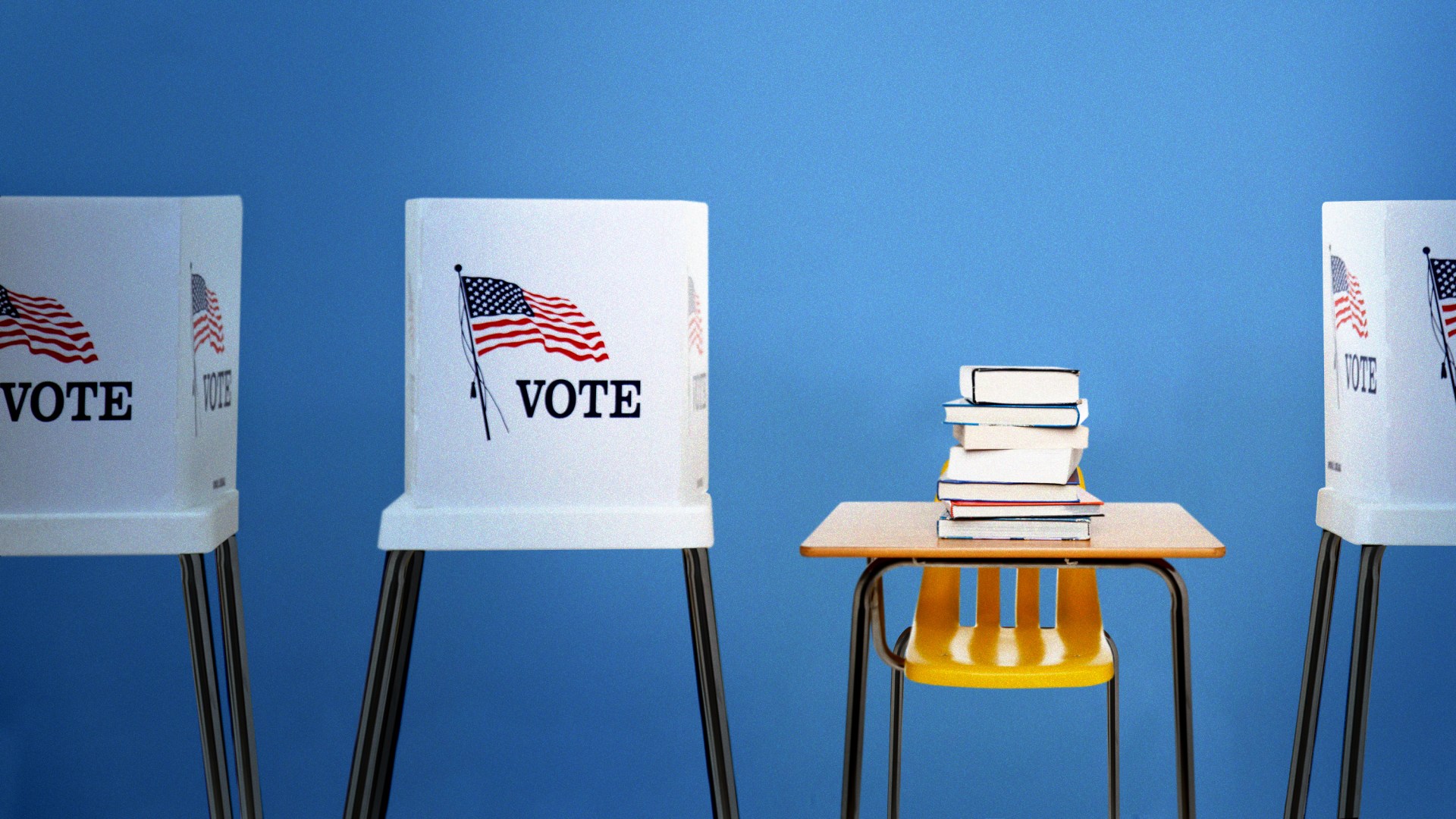In an earlier internet age, I remember hoping that the internet would make us all so well informed. We could keep tabs on everything, from local news to the chaos of Washington and happenings of the wider world.
Indeed, the mere act of being aware of newsy content seemed like a virtue—why else had “raising awareness” about this cause or that campaign become a national preoccupation? We’d become better citizens, the thinking went, because we’d be better-informed citizens. We could vote with more care and nuance because it’d be easier to research candidates and interact with them online. A constant, unlimited flow of information would be good for America.
Or not. That simple optimism is impossible to summon now, and though being politically well informed is a good thing, the prospect can sound more exhausting than enticing. Now we know that consuming political media can distort our perception of our political opponents, that airing our opinions online makes it harder to admit when we’re wrong, and that on platforms like TikTok and Twitter “falsehood diffuses significantly farther, faster, deeper, and more broadly than the truth,” as MIT researcher Sinan Aral put it.
The knowledge of the good and evil of our media landscape has left many torn, I think, between competing impulses: an uneasiness with the habits involved in being politically informed and a sense that it’s a civic duty.
But this week before the midterms, I’d suggest a third way: It’s okay to cram before you vote. We don’t have to stay at Election Day–levels of political competence all the time. We can study up this weekend, vote if that’s where research leads, and go back to other, better things until the next election rolls around.
The time we spend on politics is not an unlimited resource. “Be very careful, then, how you live—not as unwise but as wise,” Paul advised the church at Ephesus, “making the most of every opportunity, because the days are evil” (Eph. 5:15–16).
Is it a wise use of time to always be up on the latest headlines, to track every twist and turn of this congressional investigation or that court case? For many of us, much of the time, the answer is no. Many news cycles are dominated by soon-irrelevant matters, and we can always catch up on the substantive stuff after a few days or weeks have shown it’s worth our while.
The minutes (or hours!) we frantically devote to distant political controversies over which we have no influence and which may well come to nothing is time taken from somewhere and perhaps someone else. It’s time we could have spent with Scripture or a good book; with our families, friends, or church; or tangibly serving the needs of our local communities. To tweak the words of James, political awareness without deeds is useless (2:20). What better and wiser use of our lives are we sacrificing to be perpetually “aware”?
In a 1946 letter, C. S. Lewis warned that giving our limited attention to problems far from our grasp is not simply going outside our call to love our neighbors but can actually interfere with it:
I think each village was meant to feel pity for its own sick and poor whom it can help and I doubt if it is the duty of any private person to fix his mind on ills which he cannot help. (This may even become an escape from the works of charity we really can do to those we know.) A great many people (not you) do now seem to think that the mere state of being worried is in itself meritorious. I don’t think it is. We must, if it so happens, give our lives for others; but even while we’re doing it, I think we’re meant to enjoy Our Lord and, in Him, our friends, our food, our sleep, our jokes, and the birds song and the frosty sunrise.
What Lewis called “being worried” we’ve dubbed “raising awareness” or “staying well informed.” The new names don’t change the merit of his critique.
“Always be prepared to give an answer to everyone who asks you to give the reason for the hope that you have,” writes the apostle Peter (1 Pet. 3:15). His advice points us to a better model for the average Christian in a country where the government solicits our opinion at predictable intervals: We should be conversant in accordance with our priorities—or in proportion to our allegiances.
If our commitment to Christ and his church is preeminent, the time, attention, and knowledgeability we give them should scale to fit. A difference in how conversant we typically are about faith and politics makes sense if they occupy appropriately different places in our hearts and minds.
Finally, cramming for an election is a perfect fit for the American system of government. It has democratic elements, but it’s not a direct democracy. It’s representational, which means most of us delegate our political responsibilities to others. At the official level, that means elected politicians and unelected bureaucrats and staff. Unofficially, it includes journalists like me and political lobbyists, activists, and hobbyists—people who truly enjoy politics as a pastime.
For everyone else, however, politics was never meant to be a daily preoccupation. Representation frees us to spend our time on better and more needful pursuits, like caring for those in our own villages. And if the representatives are performing poorly, our daily worrying won’t change that. Our votes sometimes can—but we can cram for that.










